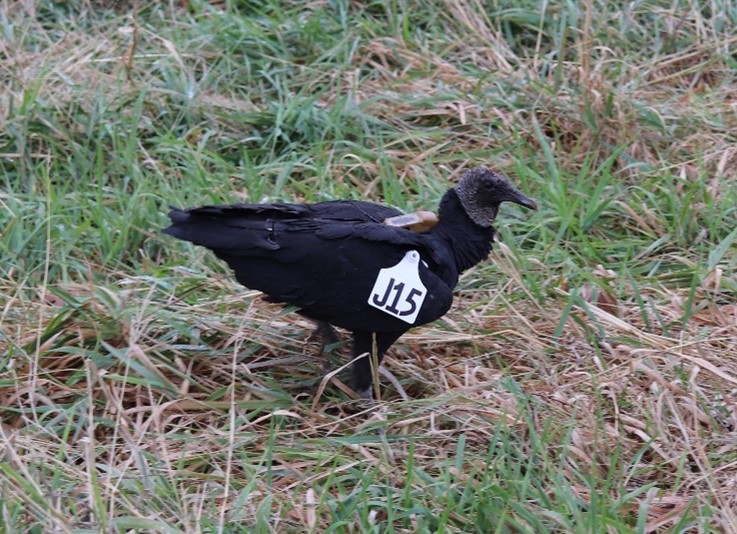Missouri Black Vulture Control
Controlling Nuisance Black Vultures in Missouri
Black vultures are increasing in population and their aggressive nature can cause problems for livestock producers in Missouri. Unlike the less-aggressive turkey vulture, black vultures are known to gang up and prey on newborn livestock. They sometimes attack cows that are ill or giving birth. While they feed on dead animals, they can kill small to medium sized animals.
Black vultures leave characteristic evidence of their depredation. They can inflict damage to livestock by plucking out eyes, disemboweling, or eating tongues of newborn and sick animals.
Depredation Permits
Black vultures are federally protected by the Migratory Bird Treaty Act of 1918. This means the birds, their nests and eggs cannot be killed or destroyed unless a permit is obtained from the Missouri Farm Bureau. Permits are free and producers can obtain up to 10 annually. Apply for a permit by contacting Julie Waldrop or calling (573) 893-1417. Find further permit information at mofb.org.
Other Mitigation Options
- Pen birthing livestock near human activity to enable closer observation and a quicker response to problem situations, or keep expectant animals in pastures nearest to people.
- Condense birthing time frame, so animals can be monitored closely.
- Place black vulture effigies (replicas) around calving areas to scare away live vultures. Hang them by their feet and suspend in the air, so they can be seen from a distance.
- Harass and scare black vultures away from your herds or flocks. Examples: create loud noises (horns, starter pistols, shell crackers, propane cannons), spray water, and point lasers at the roost.
- Use a guard dog to frighten and chase away black vultures.
Create a Customized Management Plan
Producers can request a site visit or technical assistance from the USDA Animal and Plant Health Inspection Service - Wildlife Services. Contact USDA-APHIS (573) 449-3033 x10 to discuss options, evaluate the situation, and/or schedule time to establish a customized damage management plan.
Loss Coverage
When livestock loss is proven from black vultures, producers can apply for reimbursement for both the cost of the animal and the necropsy.
- Apply to the Livestock Indemnity Program through your local USDA Farm Service Agency for the cost of the animal. Payment rates vary by species and age of the animal.
- The Missouri Department of Agriculture has a black vulture necropsy reimbursement process in place. The necropsy must be performed by a licensed veterinarian (or a USDA-APHIS official) within 24 hours of finding the deceased animal.
Black Vulture Study
The Missouri Department of Conservation (MDC) is partnering with the U.S. Department of Agriculture (USDA) on a multi-year study to better mediate conflicts with black vultures. The purpose of the study is to better understand black vulture movements, human-black vulture conflict, and to test vulture management tools. Landowners, cattle ranchers, bird watchers, and others may contribute to the study by reporting sightings of black vultures, or takes of black vultures, with cattle ear tags on their right wings.
In an effort to track black vultures and test management tools, 89 black vultures near the Missouri-Arkansas border were captured in the spring of 2024 and equipped with a white cattle ear tag on their right wing. Each tag has a letter and number (i.e., A47 or C20). The tags may be visible from below while the birds are flying, or while birds are perched. Twenty-eight vultures were also equipped with radio transmitters to study migration patterns and use of airspace, such as how far they travel, how high they fly, or how many roosts they use per season.
All sightings, or takes, of tagged birds should be emailed to USDA Wildlife Biologist Eric A. Tillman at Eric.A.Tillman@usda.gov or reported to the United States Geological Survey’s Bird Banding Lab online at reportband.gov.


